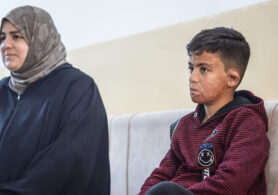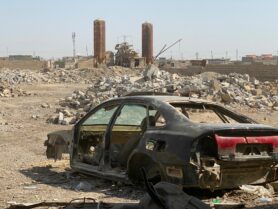A thought-provoking article by NRC discusses the Dutch Ministry of Defense’s recent announcement that it will purchase ammunition for the MQ-9 Reaper drone. The implications of this decision have sparked concerns about the necessity of specific rules and protocols governing the deployment of armed drones. As NRC reports, experts and critics alike raise crucial questions related to ethics, accountability, and civilian safety in the context of drone warfare.
According to the article, one of the most contentious aspects of armed drones is their potential for targeted killings. As human rights advocates and peace organizations argue, without clear guidelines, the risk of mission creep and the expansion of drone warfare capabilities becomes a pressing concern. The article highlights their long-standing call for the development of comprehensive regulations, which would ensure the strict adherence of armed drones to international humanitarian law, safeguarding ethical standards in warfare.
Drawing attention to the track record of armed drones and civilian casualties, the article underscores incidents of mistaken identity and faulty intelligence that have resulted in tragic unintended harm to innocent civilians. Transparency and accountability in drone operations are cited as crucial factors in addressing these concerns. Critics emphasize the urgent need for stringent protocols and independent oversight to mitigate risks and hold those responsible for any misconduct accountable.
The decision to arm the MQ-9 Reaper drone represents a significant shift in the military’s capabilities, raising questions about the proportionality of force. As the article highlights, while the integration of weapons on unmanned platforms aims to protect troops by avoiding direct engagement, it also heightens concerns about the potential for a more liberal use of force and the erosion of human judgment in decision-making processes. The ease of deploying armed drones and their lower risk to operators raises worries about the potential increase in disproportionate use and collateral damage.
In light of these debates, the article emphasizes the urgent need for international consensus on clear guidelines for armed drones. Comprehensive protocols and safeguards, aligned with international humanitarian law, are necessary to protect civilians and ensure responsible use. The establishment of robust regulations, independent oversight mechanisms, and accountability frameworks would play a crucial role in maintaining public trust and upholding the principles of just and responsible warfare.
This post was written by IRW LAB student Shakila Ayubi.
Image source: Ministerie van Defensie



